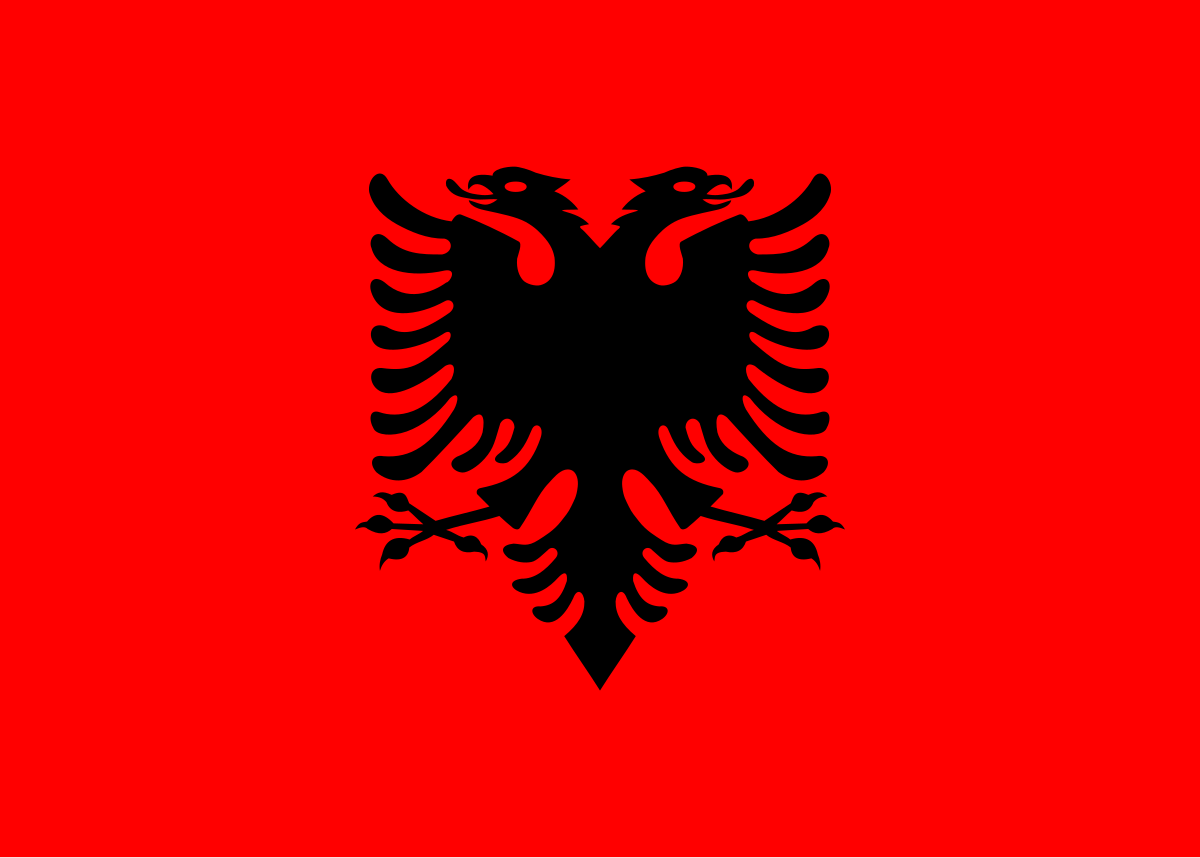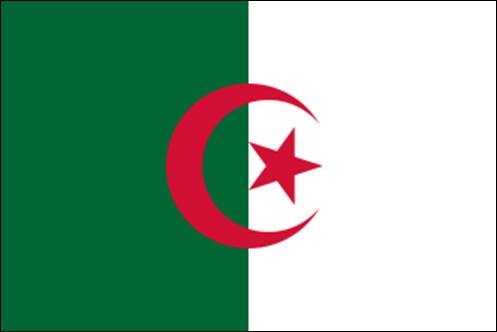Albanian culture encompasses a way of life followed by ethnic Albanians, which includes not only Albanians living in the country of Albania but also its neighboring countries of Kosovo, North Macedonia and Montenegro, where ethnic Albanians traditionally lived for centuries, forming the native populations. Albanian culture has been significantly influenced by its geographical location in the western Balkan peninsula and has evolved over time, shaped by the history of Albania as well as the nearby countries that ethnic Albanians resided in.
Albania was first occupied by a tribe of people called the Illyrians around 2000BC. The term ‘Albanian’ comes from a region called Albanoi and its capital, Albanopolis, which is where the Illyrian settlers came from. Following the Illyrians, Albania was conquered first by the Roman Empire, second, the Byzantine Empire and later by the Ottoman Turks in the 15th century. The Turkish rule shielded Albania from the Western hemisphere and civilizations for over four centuries and most of the Albanian population converted to Islam during this time. The Albanians resisted their conquerors and fought for independence many times, but it was not until 1912 that Albania was officially declared an independent nation.
There are two main subgroups that form current day Albanians, the northern Ghegs and the southern Tosks. The line of separation between the two groups is physically marked by the Shkumbin River that flows from the east to the west of Albania and is inherently marked by the differences in their culture and language. Outside of Albania, the ethnic Albanians living in Kosovo, northern part of North Macedonia, Montenegro and Croatia speak the dialect of Gheg. Meanwhile, ethnic Albanians living in Greece, southern part of North Macedonia and southern Italy speak Tosk. Although characterized by many differences, both groups identify with the national culture that was shaped through Albania’s long history and its traditional system of law and code of conduct, called Kanun. An important belief and practice required under Kanun is Besa which means ‘to keep promise’. The honor code and the moral obligation of keeping one’s promise is an integral part of the Albanian culture. Besa also teaches the responsibility of helping those in need. Driven by this philosophy, Albanians protected nearly 2000 Jews during World War II. Instead of just hiding them from authorities in cellars and attic spaces, Albanians took them in, gave them Albanian names and took care of them as if they were family.
Family Life
Albanian culture tends to be more collective rather than individualistic, and a sense of family and the concept of community is a vital part of the Albanian way of life. It is common for women to have many children. Albanian families tend to be large and very close. Grandparents often live with their children as well as the grandchildren with extended family members also living close by. Albanians tend to put family first and think of their family members before thinking of themselves. The individual family as well as the community at large tends to offer support both in good and bad times. This inevitably means that community members get involved in most matters which could restrict privacy and one’s ability to live life as they please. Albanians are answerable to their families as well as the community they belong to.
Albania is a patriarchal society. The eldest male family member is generally the head of the family, while the women in the family have a more subordinate role. The patriarch of the family can arrange marriages for the girls in his family from an early age. An unmarried woman can be regarded as a misfortune to her family. In some regions of Albania, a dowry or a fee of money is exchanged for a woman’s hand in marriage, and once married, the wife is considered the property of her husband. Albanian weddings are generally celebrated at a large scale over several days, with hundreds of guests from the community invited to partake in the wedding feast.
Language
Albanian, with its two major dialects, Gheg and Tosk, is the official language spoken by almost 98% of the population. Albanian is an Indo-European language and is believed to be derived from the language spoken by the Illyrian tribe. Most Albanians are muti-lingual and can speak many languages including Greek, Italian, Serbo-Croatian and English. English is widely taught in schools in modern day Albania and is now the most common foreign language spoken by the younger generation.
Dress
Traditional Albanian clothing varies by geographical area and culture but usually tends to be colorful and made with a lot of detail. Embroidered decorations with Illyrian symbolic images of the sun, moon, stars, snakes and eagles are common. Desings with zig zag and concentric circles derived from ancient Balkan times also appear in national clothing and are worn at symbolic events and special celebrations such as holidays, weddings etc…
In addition to color, white also holds an important place in Albanian culture for both Gheg and Tosk Albanians. Gheg Albanians traditionally wear white trousers while Tosk Albanians traditionally wear white kilt.
Cuisine
Albanian cuisine is comparable to the Mediterranean cuisine and is rich in vegetables, herbs and fruits as the region of Albania is filled with lush, fertile landscapes and moderate climate that is conducive to growing produce. Albanian dishes and cooking practices vary with influences from Italian, Greek and Turkish flavors but most recipes feature olive oil, which is produced in abundance, especially along the coast of the country. Albanian cooking uses a wide variety of vegetables and smoked meats. With its close proximity to the sea, fresh fish and seafood specialties are popular among Albanians. Popular dishes include stews, soups and chicken and lamb marinated in yogurt. Hospitality and serving of freshly prepared meals to guests is important for Albanians.
Holidays
Christianity, Islam and Judaism are traditional religions practiced in Albania. Religious tolerance and freedom are some of the most important Albanian values. Albania is unique in that sense when compared to European history which has navigated a great deal of religious persecution. In spirit of Albania’s recognition of all religions, several religious holidays are observed as part of the national holiday calendar. One of the biggest national holidays in Albania is their Independence Day on November 28th, the day when the Albanian flag was raised in Vlora in 1912 as a declaration of independence from the Ottoman Empire.
Business Culture
Business culture in Albania is different from what one may be used to seeing in the west. Business meetings are often more informal and can take place at homes, en-route in taxis and restaurants. Albanians do not closely adhere to time. Being late to events, whether they are official business meetings or personal engagements, is not frowned upon and happens in Albanian culture. Business contracts are often made verbally, and written documents are not always needed. This may stem from the honor code or Besa, that is a significant part of Albanian culture and way of life. Payments for business dealings are often made in cash. Gifts for business partners in not considered unethical. Instead, gift giving is actually a very important practice for Albanians. Gifts that are considered good include pieces of art that could be used to decorate offices or if the recipient of the gift has children, then gifts for the children are appreciated.
References
Wikipedia, The Free Encyclopedia. (Last edited 2025, March 27). “Culture of Albania”. Culture of Albania – Wikipedia
Wikipedia, The Free Encyclopedia. (Last edited 2025, March 13). “Flag of Albania” Flag of Albania – Wikipedia
World Culture Encyclopedia, Countries and their Cultures, Forum. (Website 2025 Advameg, Inc.). “Culture of Albania”. Culture of Albania – history, people, traditions, women, beliefs, food, customs, family, social
Original Travel. “Albania Culture”. Albania Culture – Original Travel
Safeguarding Children, West Midlands Anti Slavery Netowrk. (2022). “Albanian Culture, A Guide for Frontline Professionals”. Albanian-Culture-A-Guide-for-Frontline-Professionals-Page-Version-with-Printers-Marks.pdf
TJC Global Professional Translation and Interpreting Company All Rights Reserved. (1985-2025). “Business Etiquette & Culture in Albania”. Doing Business in Albania | Business Etiquette – TJC Global




